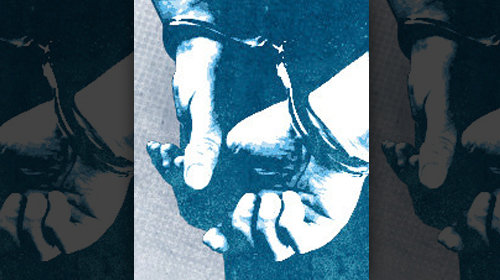
Today, the U.S. has the highest incarceration rate of any country in the world. With over 2.3 million men and women living behind bars, our imprisonment rate is the highest it's ever been in U.S. history. And yet, our criminal justice system has failed on every count: public safety, fairness and cost-effectiveness. Across the country, the criminal justice reform conversation is heating up. Each week, we feature some of the most exciting and relevant news in overincarceration discourse that we've spotted from the previous week. Check back weekly for our top picks.
Eric Holder Announces Sweeping Criminal Law Reform
You've likely already seen this week's big news: Attorney General Eric Holder announced in a speech on Monday that he will instruct federal prosecutors to charge low-level drug offenses so as not to trigger a mandatory minimum sentence. In appropriate cases, prosecutors would from the indictment, allowing judges to choose an individualized sentence (they would still know the amount of drugs involved), including diversion to a treatment program. Mr. Holder also announced a plan to expand the criteria for releasing elderly prisoners who don't pose a risk to public safety, along with several other initiatives. For more, read our guide on how to process Holder's speech; the ; this from the Dept. of Justice (DOJ), laying out reform proposals; and Mr. Holder's regarding the new policy.
It is likely the case that Mr. Holder's rhetoric will have more impact than his new set of reforms. The federal prison population is a small slice of the very large pieÔÇöonly 9 percent of the 2.23 million people in prison or jail are held in federal facilities. And the new policy will only affect a portion of the classified as drug offenses. And while affected cases won't be subject to mandatory minimums, it is likely that defendants will still face prison time, albeit less of it. While the effect of Holder's first round of proposals on our deeply entrenched mass incarceration crisis will likely be limited, Holder's speech has still a high-profile reminder of the increasing urgency of and national momentum toward reform.
Simply put, it's a big deal that the attorney general came outÔÇöin no uncertain termsÔÇöin favor of reducing the number of people in prisons and addressing the racial disparities present at every stage of the criminal justice system. From his speech:
We also must confront the reality that ÔÇô once they're in that system ÔÇô people of color often face harsher punishments than their peers. One deeply troubling report, released in February, indicates that ÔÇô in recent years ÔÇô black male offenders have received sentences nearly 20 percent longer than those imposed on white males convicted of similar crimes. This isn't just unacceptable ÔÇô it is shameful. It's unworthy of our great country, and our great legal tradition.
If you're interested, here's the to which he refers; he's talking about the data on p. 108. But no matter the scale, the new policy will allow judges to determine fair and effective sentences for men like Jamel Dossie, rather than being forced by statute to issue a sentence written for more serious offendersÔÇöand that's a good thing.
Other Interesting Items from the Past Week
A federal judge found the NYPD's stop-and-frisk practices unconstitutional. The orders several remedies, including the installation of a monitor to oversee reforms. A lot has been written about the policy's disparate racial impact, and dismantling proponents' arguments that the policy is an effective response to crime; make those points effectively.
The American Correctional Association, led by Mississippi Dept. of Corrections head Christopher Epps, in favor of legislative mandatory minimum reform.
Want to know how addicted your state is to incarceration? Check out our state legislation map for updates on recent activity in state legislatures to reduce prison populations, with contextual information about each state.
Learn more about overincarceration and other civil liberty issues: Sign up for breaking news alerts, , and .
